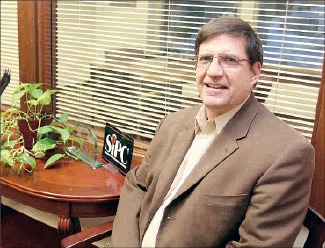
Home » Some small-business owners setting up pensions
Some small-business owners setting up pensions
Consultants report rise in niche-group interest in defined-benefit plans as many business owners near retirement age

December 1, 2011
Despite the trend among medium-sized and large companies to halt their defined-benefit pension plans, certain small businesses are finding advantages in setting them up, some retirement-plan consultants here say.
Mike Furrer, an independent consultant to Moloney+O'Neill Benefits LLC, of Spokane, says he's been seeing more interest in such pension plans for small businesses recently than anytime in the last 10 years.
He says defined-benefit plans can be ideal for high-income earners in closely held family businesses, because such plans can be skewed to benefit them, Furrer says.
While that might seem like a narrow niche of companies, such concerns are "kind of the heart and soul of Spokane business," Furrer says.
A business owner—especially one who's the only employee of the business—can put away several hundred thousand dollars within a few years in a defined-benefit plan, says John Kapek, who owns Pension Investment Services LLC, of Spokane.
High-contribution pension plans are ideal for small, well-established, stable businesses—not for companies for which earnings and income are volatile from year to year, Kapek says.
In some cases, a small business owner may have invested a significant amount of income and profits in building up their businesses, Kapek says. When retirement is on the horizon, however, such owners often discover they haven't put enough away, even though the business has begun generating significant profits, he says.
"If a business owner has a small number of employees—or younger, lower-paid employees—the owner can get a significant amount of the plan allocated toward his retirement," Kapek says.
Owners of small medical and law practices, sales representatives, and self-employed business owners are typical candidates for such pension plans, he says. Most of them are small concerns with fewer than 10 employees.
Under such a plan, the business owner is considered an employee. "Generally, the owner is going to be older and paid significantly more than the rank-and-file."
Clay Randall, a principal in Randall & Hurley Inc., of Spokane, says some small business owners are setting up pension plans just for the sake of putting away money quickly and reducing income tax liability.
Randall & Hurley recently has added some defined-benefit plans to its roster.
"Just based on our experience, we're getting more requests for defined-benefit plans than we did a couple of years ago," Randall says.
But those requests all are in regard to companies with a small number of employees.
"We haven't put together large, 50-person plans," he says. "Larger companies are setting up 401(k)s."
The firm has helped set up some one-person pension plans in recent months.
"Real small plans with only one or two people, such as a husband and wife, aren't uncommon," Randall says. "We've seen more doctors than any other category of business owners. They like the idea of putting money away and getting a tax deduction."
Once set up, though, the employer-contribution requirements can change inversely to investment returns.
If some of the plan funding is expected to come from investments, and those investments underperform, the employer has to make up the difference to keep the pension plan fully funded, Randall says.
"When earnings go down, contributions have to go up. It's not predictable and not flexible," he says.
The main attraction of a pension plan for successful small business owners is the amount of money that can be contributed, compared with other plans, he says.
The limit for defined-contribution plans, such as a 401(k), is $71,000 for eligible participants for 2011. That includes employer and employee contributions and catch-up contribution for older employees.
"The defined-benefit plan allows you to stack a lot more money in it," Randall says.
An employer with an annual income of $500,000 can contribute up to $245,000 of that to a defined-benefit plan this year, he says.
Furrer says younger employees receive smaller allocations to start out because they have longer to go until retirement.
"Age is one of the greater factors," he says. "The ideal is a 55-year-old business owner with a bunch of 25-year-old employees."
A pension plan carries greater risk for the employer, though, than a defined-contribution plan. In defined-contribution plans, employees contribute to their own retirement funds and employers have more discretion over whether they contribute to them.
A defined-benefit plan requires the employer to contribute enough to keep the plan viable if investments underperform.
"It obligates the employer to make a deep commitment to the plan," Furrer says. "Defined-benefit plans are very complicated. Actuarial assumptions are required, and the plan can fall behind."
In most cases, employees must be included when business owners set up pension plans.
"If you exclude a 60-year-old office manager who's been with the company 20 years, there could be legal issues of discrimination," Kapek says. "If there's an employee who would be extremely costly to cover, you probably won't do this kind of a plan."
Kapek says he anticipates more small business owners will establish defined-benefit plans as the economy improves.
"We saw that following the 2001-2002 market crash," he says. "Business owners needed to catch up and establish pension plans."
Up Close
Related Articles





